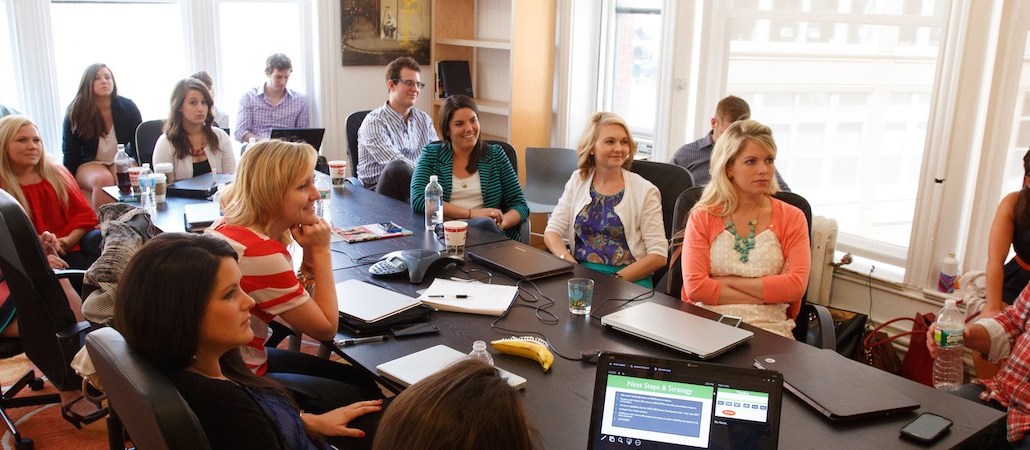
For years, marketers looking to reach across cultural and ethnic boundaries would enlist the help of specialist agencies that focus on a particular market — Hispanic or African-American, for example. Now, add a new group to that list: millennials.
The much-reviled, much-misunderstood generation is getting a slew of ad agencies devoted to figuring out what makes them tick.
 On one hand, it’s clear why these specialized agencies are popping up: Millennial purchasing power is high, about $200 billion direct (what they can buy) and $500 billion indirect (what others — namely, parents — buy for them), and most of them haven’t hit their peak buying power yet. They’re confounding: The U.S. Chamber Foundation calls them the “most studied generation to date.”
On one hand, it’s clear why these specialized agencies are popping up: Millennial purchasing power is high, about $200 billion direct (what they can buy) and $500 billion indirect (what others — namely, parents — buy for them), and most of them haven’t hit their peak buying power yet. They’re confounding: The U.S. Chamber Foundation calls them the “most studied generation to date.”
That’s why Chip Rives started Fluent, a Boston-based “college marketing and millennial agency” that recently made news when it signed AT&T as a client. The agency’s point of difference is that it works in partnership with the National Association of Campus Activities. Asked if millennials really are different enough to warrant a specialized shop, Rives says yes: “They’re completely different. They’re free to think and do as they please. They’re open to a ridiculous amount of new ideas and technology,” he said. “All the research is very cliched on millennials.” For example, the common assertion that millennials spend most of their time online on mobile isn’t entirely true — the Millennial Index found, for example, that 65 percent of them still prefer to use their desktops. Those kinds of nuances are what Rives’ agency tries to highlight.
“We are working with a variety of specialized agencies who are at the forefront when it comes to understanding and connecting with the voice of this millennial generation,” an AT&T spokesperson told Digiday. “AT&T has a long history of marketing innovation and is not shy about taking risks and trying new platforms to engage with a millennial audience.” Just last week, the brand launched SnapperHero, an influencer-driven scripted series on Snapchat.
Rives is the only non-millennial at Fluent, which has 35 employees across Boston and a satellite office in Columbia, South Carolina. “We have a crop of recently graduated folks, which is useful because we need to help clients figure those people out,” said Rives. The agency recently bought Streak Media, a publisher of email newsletters that go out to campuses like Harvard, Boston College, MIT, UMass and Stanford. Streak will be a new platform for Fluent clients to advertise on, said Rives. The agency also operated a website called Campus Influence, which asks college kids to do surveys in return for the chance to get some money.
But does positioning themselves as experts in one thing help agencies with new business? Ann Billock, partner at agency search consultancy Ark Advisors, said that while millennials are an increasingly important target for clients, there hasn’t been much call for specialists in the field. “Most of the agencies have so many young and millennial employees today that they are feeling that they are covering this market quite well,” she said. “It’s somewhat akin to those agencies who say they specialize in urban [markets]. Often, within most agencies are people who can rise to the occasion and handle this kind of need.”
Barkley has gone a different way. The agency is a parent of millennial trends consulting company FutureCast. Futurecast president Jeff Fromm, the author of “Marketing to Millennials,” spearheads research on the group, and the integrated agency at Barkley will execute it. Fromm said it’s not clear that agencies need to dedicate themselves to just one generational group, but stressed that millennials are vastly different from preceding generations and, so, merit special attention.
“Millennials, for example, want brands that create meaning. All of a sudden, clients who never thought of this as a responsibility have to do that.” All the old marketing models that worked with previous generations don’t work with the new cohort. Billock said that some agencies, notably Barkley, are aggressively marketing their millennial marketing practices and getting some traction. One of the older agencies in the youth-focused business is Burlington, Vermont-based Fuse, which says it employs experts on millennials and teens to provide brand strategy, creative, media and PR services. According to a spokesperson, the agency uses an in-house insights team to find data on the millennial demographic because today’s youth are “not as receptive to all the same marketing tactics as past generations.”
Rives, for his part, thinks that’s what makes his business a must. “As recently as just five to 10 years ago, the college market was thought of as a ‘nice to have’ niche market, often treated as an afterthought by brands in their overall marketing efforts,” he said. “But digital technology and social media has changed all of that. Now the college market is among the most influential demographics there is, shaping tastes and preferences that can drive a brand’s entire product strategy and image.”
But perhaps a different approach suffices, as in the case of WPP’s Grey, which decided that its millennial focus didn’t necessitate a separate agency staffed by Gen Y-ers. Instead, it chose to just move its youngest employees into a separate office, dubbed “Base Camp.”
Homepage image courtesy Fluent
More in Marketing

Meta’s Threads expected to have ads this year
The move would make Threads Meta’s latest bit of ad real estate venue just over a year after its launch.

Mobile esports reaches new heights in 2024 with a boost from Saudi Arabian investment
Mobile esports activity has been picking up gradually since 2021, but 2024 could be one of the most lucrative years yet for the esports teams and players participating in popular mobile games such as “PUBG Mobile” and “Mobile Legends: Bang Bang” (MLBB).

Q1 ad rundown: there’s cautious optimism amid impending changes
The outlook for the rest of the year is a tale of two realities.





